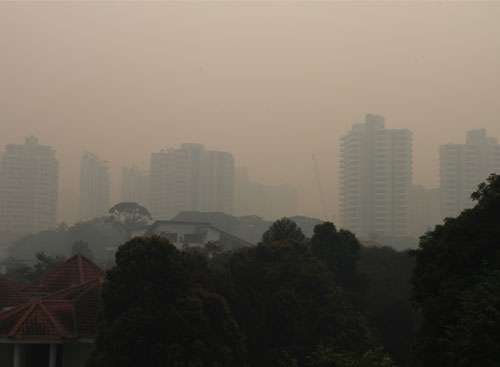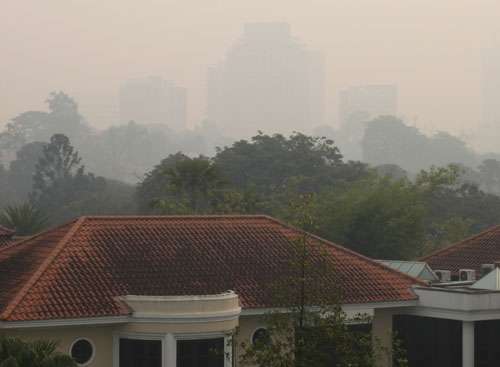Singapore pollution reaches hazardous levels

This week Singapore's pollution standards index (PSI) reached 400, breaking all previous records and prompting government health warnings. A PSI reading above 200 indicates "very unhealthy" air, while a PSI score above 300 is considered "hazardous".
The haze is caused by illegal forest fires in neighbouring Indonesia's Sumatra island.
Fauna & Flora International's Dr Stephen Browne, Director of Operations for Asia-Pacific, who is based in Singapore said, "There seems to be conflicting information about who is causing the fires, but whether it's large-scale plantation companies or small-holder farmers, forests are being cut down and burnt. For there to be pollution at this scale there must be a lot of forest going up in smoke."
The fires are started to clear land for agriculture which not only results in the loss of important habitats and biodiversity, but is also making a significant contribution to greenhouse gas emissions. Stephen noted that, "With all the speculation and finger pointing in the local and international media, one thing that's clear is that a number of the oil palm companies who previously faced a lot of criticism over their past environmental records are united in saying that as members of the Roundtable on Sustainable Palm Oil (RSPO) they now have 'no burn' policies."
Drier weather conditions in the region led to an escalation in hotspot activities over central Sumatra. The smoke haze from the fires on the Indonesian island has been carried over by prevailing winds and has dramatically affected Singapore for the last week. Buildings are now obscured by the polluted air and the smell of burnt wood permeates through the city-state.

The Ministry of Health (MOH) advises that Singaporeans limit prolonged or heavy outdoor activities. In particular, children, the elderly, and those with heart or lung diseases should avoid outdoor activities and seek medical treatment early if they feel unwell. MOH has activated the hospitals to prepare for the anticipated increase in the number of cases of asthma, bronchitis and conjunctivitis. The military has also reportedly suspended all outdoor training.
Andrew Tan, chief executive of Singapore's National Environment Agency, will lead Singapore's delegation at the emergency meeting, hosted by Indonesia's foreign ministry in Jakarta.
Air quality in parts of Malaysia has also reportedly deteriorated, with some areas badly affected by the smog.
Indonesian officials have suggested that foreign palm oil investors, including Singaporean companies, may bear some responsibility for the fires.
Provided by Fauna & Flora International




















